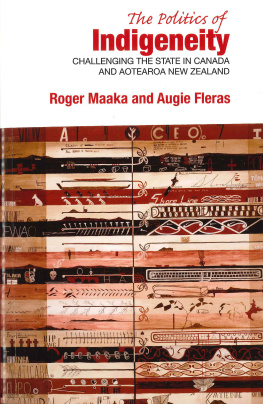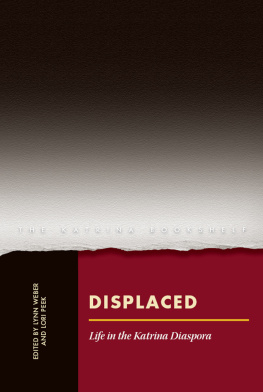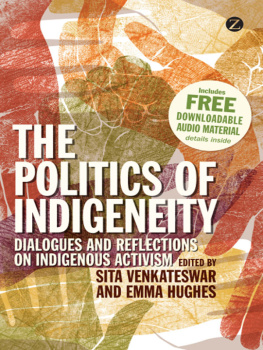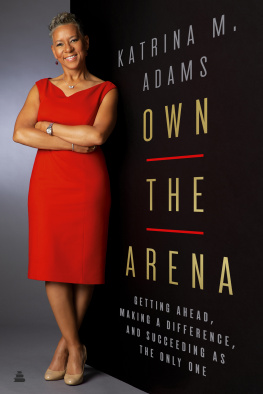This book was published with the assistance of the Authors Fund of the University of North Carolina Press.
2021 The University of North Carolina Press
All rights reserved
Set in Arno Pro by Westchester Publishing Services
Manufactured in the United States of America
The University of North Carolina Press has been a member of the Green Press Initiative since 2003.
Library of Congress Cataloging-in-Publication Data
Names: Phillips, Katrina M., author.
Title: Staging indigeneity : salvage tourism and the performance of Native American history / Katrina M. Phillips.
Description: Chapel Hill : University of North Carolina Press, 2021. | Includes bibliographical references and index.
Identifiers: LCCN 2020038250 | ISBN 9781469662305 (cloth ; alk. paper) | ISBN 9781469662312 (paperback ; alk. paper) | ISBN 9781469662329 (ebook)
Subjects: LCSH: Indians of North AmericaPublic opinion. | Indians of North AmericaHistory. | Heritage tourismUnited States. | Indian tourismUnited States. | PageantsUnited States. | Theater and nationalismUnited States. | United StatesHistoriography.
Classification: LCC E98.P99 P47 2021 | DDC 970.004/97dc23
LC record available at https://lccn.loc.gov/2020038250
Cover photo by author.
Acknowledgments
I am, like my father, often stubborn and independent. However, I have been reminded time and time again throughout this humbling and gratifying journey that, in the words of the indomitable Velma Kelly in Chicago, I just cant do it alone. Any errors in the final product, though, are mine and mine alone. I earned my PhD in History from the University of Minnesota (U of M) in 2015. My adviser , Jeani OBrien, has read every single word I have ever writtenand many of them many times. I am eternally grateful for how she has motivated me, encouraged me, and guided me since I started grad school. After my first son was born in 2013, she never flinched when I brought him to our workshops on campus or the end-of-semester parties at her house. She never doubted that I would finish my degree, and her faith in me helped me get to the finish line. I can never repay her for the time she has dedicated to me even after I earned my degree. Thank you , Jeani. Other faculty members at the U of M were also crucial to my success. Kat Hayess feedback was instrumental in shaping this final product. David Chang pushed me to challenge myself and expand my horizons, which has made me a better scholar. Kevin Murphy, Brenda Child, and Barbara Welkes insights and comments urged me to look beyond my initial research.
The American Indian and Indigenous Studies Workshop has been my academic home since my first year of graduate school. Many, many thanks to all those who read my jumbled, nearly incoherent thoughts and helped shape them into what they have become. These colleagues include Amber Annis , Jess Arnett, Marie Balsley Taylor, Adrian Chavana, Akikwe Cornell, Michael Dockry, Caroline Dnmez , Jess Estrada-Prez, Macey Flood , John Little, Samantha Majhor Alton, Hana Maruyama, Sarah Pawlicki , Juliana Hu Pegues, Bernadette Perez, Elan Pochedley, Kai Pyle, Megan Red ShirtShaw, Aglka Rencountre , Jacob Rorem, Sasha Suarez, Naomi Sussman , Jimmy Sweet , Joe Whitson, Kelsey Young, and many moreand Im sorry to anybody I may have missed. Grad school colleagues in the Department of History at the U of M (including Laura Luepke, Ellen Manovich, Melissa Hampton, and Joanne Jahnke-Wegner) also shaped earlier versions of this project, and I thank you all. Joanne has been a dear friend and a confidant since our first year of grad school, and she has proven time and time again that even somewhat disparate bodies of work can create more meaningful scholarship. Kasey Keeler and Rose Miron have become two of my dearest friends and colleagues, and not just because of our affinity for Wisconsin sports teams. My dear friend Dr. Ruth Knezevich Morshedi shared with me the trials and triumphs of graduate school. Kyle Geissler, William Lucas, and Drew and Teresa Herman showed up at talks I gave around the Twin Cities, even when I protested that they must have had something better to do those nights. I thank our friends who always asked about my research and writing (and who genuinely wanted to hear about it), and who have been constant sources of encouragement along the way.
Sarah Rickert and Liz Huninghake babysat for us as I wrote in grad school. I also want to thank the teachers at our sons Montessori school and our district preschool program for loving and caring for our boys and for playing a crucial role in their education. Balancing motherhood and academia has not been the easiest thing Ive ever done, and I want to recognize the role that those who have cared for our sons over the years have played in the development of this book. Elizabeth Pihlaja, Heidi Ganser Lang, Kimberly Wydeen Johnson, Sarah Rickert, Shannon Balow Gates, Martha Rohde, and Erinn Liebhard have been wonderful friends since our undergrad years at the U of M (Go Gophers), and I am so grateful for your friendship. Years ago, on my very first research trip, Brian and Moira Sharkey refused to let me take a cab to their house, even though multiple delays landed me in Boston in the middle of the night. Their hospitality was, and still is, much appreciated. A few years later, Chris and Brooke Amys (and Taylor and Luke) welcomed me to North Carolina with open arms and homemade pizza.
This work has also been shaped by numerous conference panels and presentations over the years, and thank you to my fellow panelists and the audiences who have helped move this forward. Its been an honor to present alongside Clyde Ellis, Linda Scarangella McNenly, Linda Waggoner, Adriana Greci Green, and Amy Lonetree, among many others, and Im thankful to have found academic homes and friends in these conferences.
When I joined the faculty at Macalester College, my list of friends and people I have to thank grew even more. I first came to Macalester as a fellow for the Consortium for Faculty Diversity, a program administered through Gettysburg College. I held a predoctoral and a postdoctoral fellowship before joining the faculty full time. Ernie Capello, Linda Sturtz, Yue-Him Tam, Karin Vlez, and Chris Wells have been kind and gracious mentors in the History Department, and theyve helped me become a better scholar and a better professor. I also need to give credit to Louisa Bradtmiller, whose advice and institutional knowledge have been incredibly helpful. I want to make sure I acknowledge Alexis Lodgson, Ellen Holt-Werle, Ginny Moran, and Brooke Schmolke for their help with my research and sharing their time with me in and out of my classrooms, whether its tracking down hard-to-find sources, sending me links to things in our campus archives, or helping me with technical issues around fellowship applications. Those who work behind the scenes rarely get credit where credit is due, and I would be remiss to leave them out of these acknowledgments. I also presented this research at the Humanities Colloquium and Conversations about our Scholarly Lives. Rebecca Wingo became an amazing confidant and writing partner. Amy Elkins, Leah Witus, and Crystal Moten became friends as well as colleagues, sharing the highs and lows and the ups and downs of being junior faculty juggling work, career, and life all at the same time. Im grateful to Jess Pearson for her advice, words of encouragement, and









